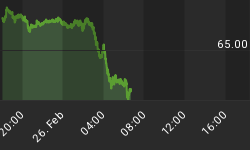The much-ballyhooed tie-up between giant wireless carriers T-Mobile US Inc. (NASDAQ:TMUS) and Sprint Corp. (NYSE:S) has been years in the making and witnessed some of the most controversial and lengthy negotiations in recent times. But all that disgruntlement and disappointment might soon pay off--satellite-TV provider Dish Network Corp.(NASDAQ:DISH) has just given the companies a much-needed helping hand by agreeing to purchase their wireless assets for $5 billion. The timely divestiture could help allay lingering antitrust concerns by the Justice Department and improve chances for the $26.5-billion merger being consummated. Stocks of both wireless carriers have rallied on the news with shares of the buyer, predictably, tanking.
Receiving the greenlight
In fact, Bloomberg says the deal could receive the thumbs-up from the DoJ as early as this week.
About $3.5 billion will pay for wireless spectrum while $1.5 billion will go to Sprint's Boost prepaid mobile business.
For its part, the TV provider will be required to actually provide cell phone services. That means that Dish cannot sell the wireless assets to a third-party like Amazon or Google thus increasing competition in the space. The company did receive a significant concession though since it will be allowed to use the already well-known T-Mobile brand to sell the service over the seven-year transition period. The Federal Communications Commission (FCC) had already issued an ultimatum to the satellite company to put its billions dollar-worth of wireless spectrum to good use by March 2020 or risk having its license revoked.
Related: Disgraced Equifax CEO Snags $20 Million Payday The merger could still face pushback from the state attorneys general who had previously filed anti-competitive concerns of their own. No less than 14 state attorneys general filed a lawsuit in June seeking to stop the merger claiming that it would lower competition and slap an extra $4.5-billion tab on customers.
New wireless space
The deal is widely expected to finally see the light of day; but it will also change the U.S. wireless landscape exponentially.
For starters, it will mean that Dish Networks will join the likes of AT&T, Verizon and the new T-Mobile/Sprint entity and become the fourth national carrier.
The Department of Justice made a major push for four national mobile-service companies. That could open up the space even further considering that Dish has purchased $40 billion worth of spectrum and has said it’s setting up a narrowband IoT network for connecting smart devices like lights and power meters as opposed to traditional cellphones and other mobile devices. Access to T-Mobile's operational support is likely to boost Dish’s ambitions to build out its own wireless infrastructure. Related: China’s Nasdaq Minted Billionaires On Day 1, Then Crashed
Whether the company is able to pull that off in the space of less than a year remains to be seen. But maybe it won’t have to. Wall Street analyst JPMorgan Chase has put out a note saying the merger could also include a stay for the March 7, 2020 deadline. The analysts though think Dish would still be obligated to build a network complete with 5G coverage in some markets within 2-3 years.
For Dish consumers who do not like the new service and would like to switch providers in the future, they are in luck because the DoJ also requires Dish and T-Mobile to support a new virtual SIM card known as eSIM. The latest iPhones use eSIM to allow users to add a second provider to models such as the XR, XS and XS Max. As you might imagine, eSIM is not terribly popular with wireless carriers who prefer to push people towards physical SIM cards.
Overall, the merger will be a big victory for T-Mobile and Sprint and a culmination of a legal battle that has been running for more than a year. The U.S. consumer can only hope that the deal proves a win for them, too.
By Alex Kimani for SafeHaven.com
More Top Reads From Safehaven.com

















